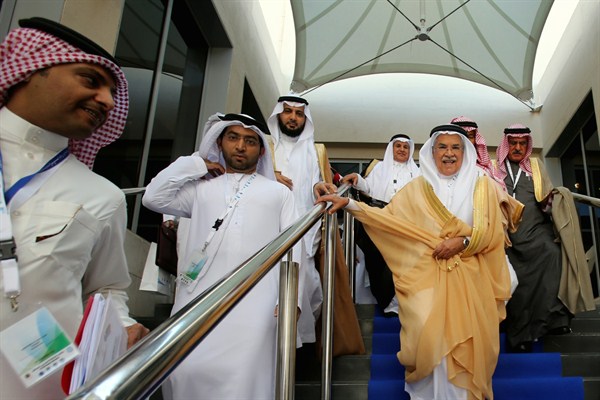Editor’s note: This article is part of an ongoing WPR series on the impact of falling oil and commodities prices on resource-exporting countries.
In a recent interview with The Economist, Saudi Arabia’s deputy crown prince, Mohammed bin Salman, talked about the kingdom’s plans to roll out avalue-added tax, as well as the possibility of privatizing Aramco, the state oil company, as ways to increase non-oil revenues in the face of the drop in global energy prices. In an email interview, Robert Looney, distinguished professor in the Department of National Security Affairs at the Naval Postgraduate School, discusses the economic and political impact of the oil slump on Saudi Arabia.
WPR: What impact has the ongoing oil slump had on the Saudi budget and public spending, and what are the implications for economic and political stability?

